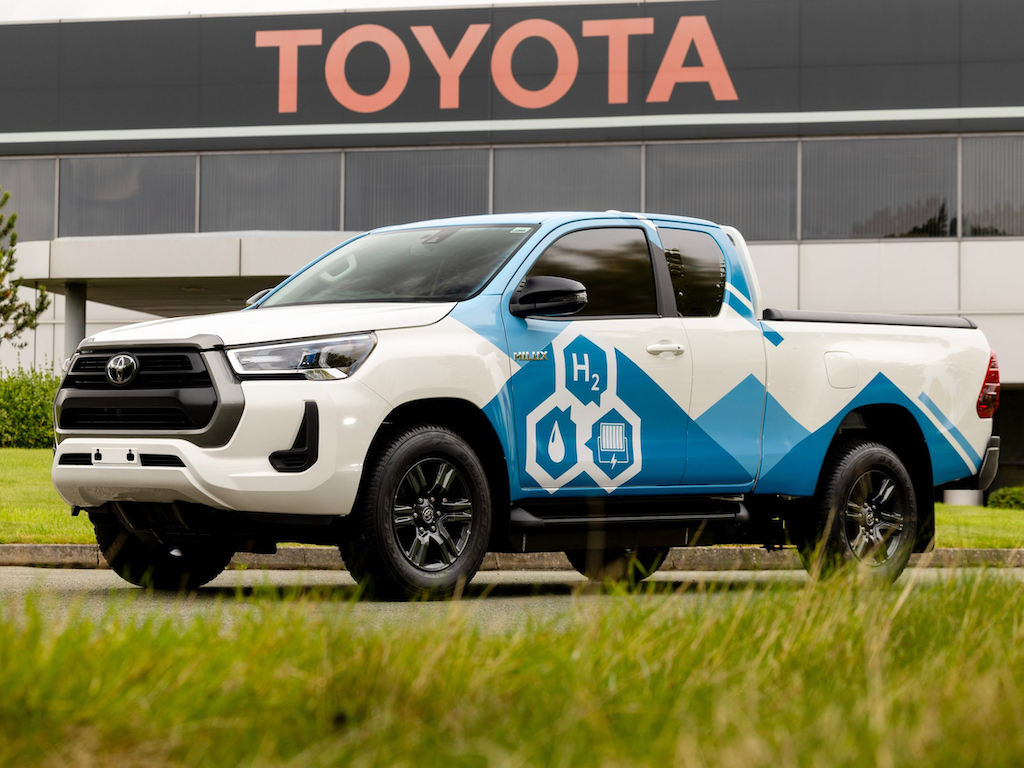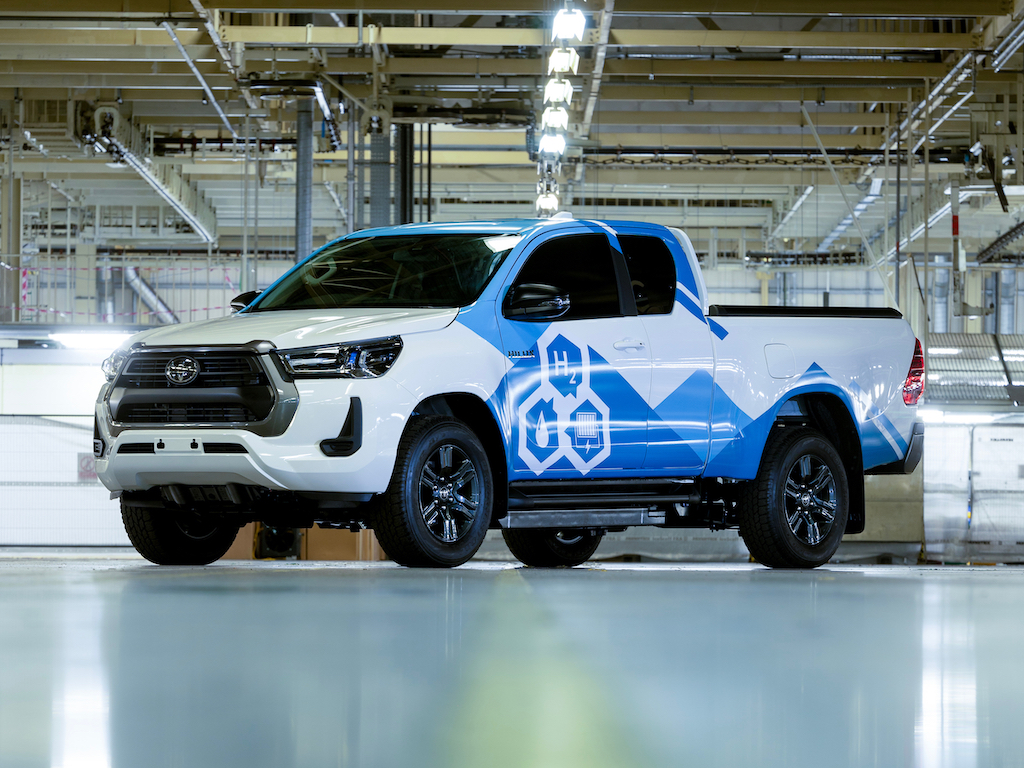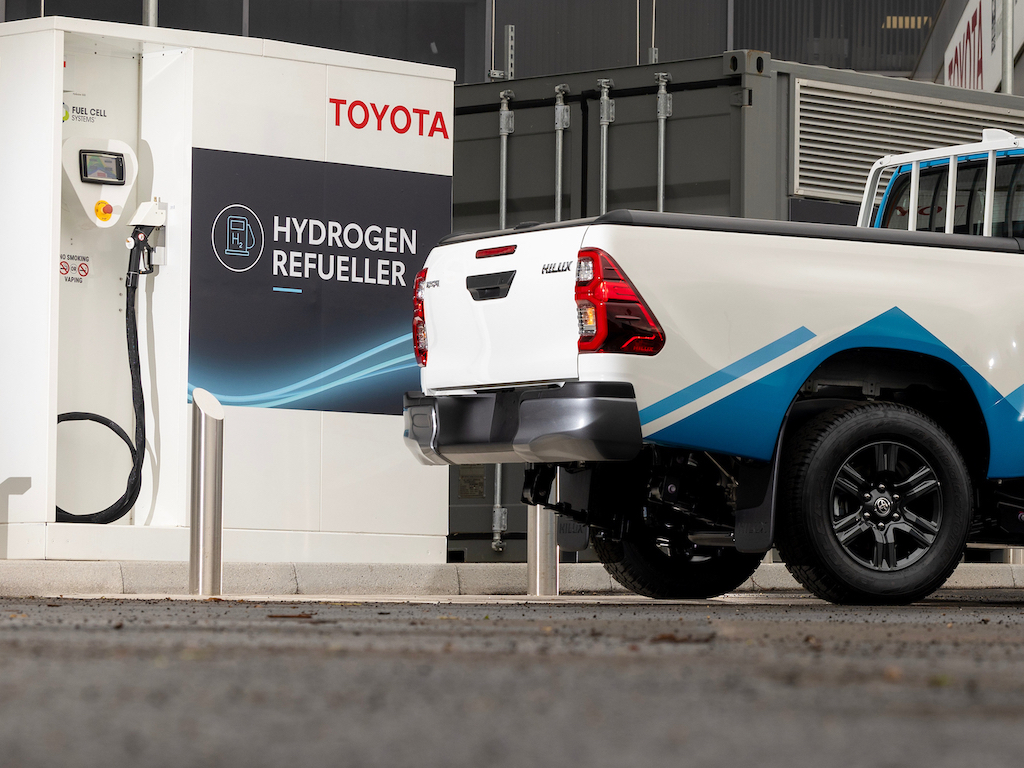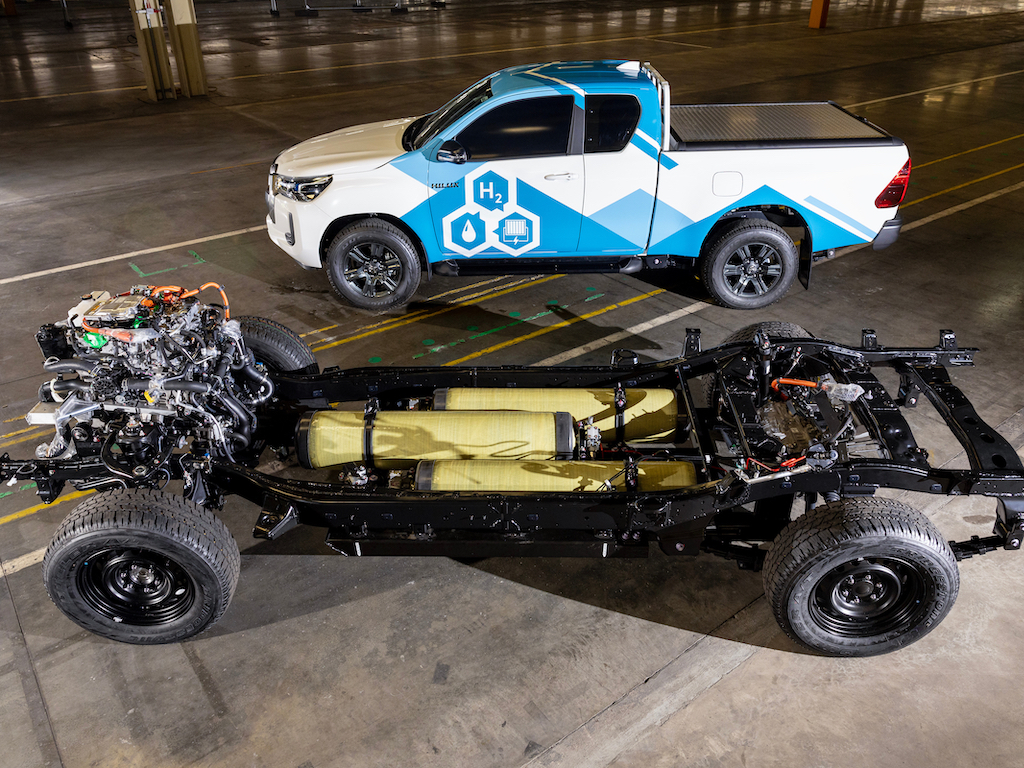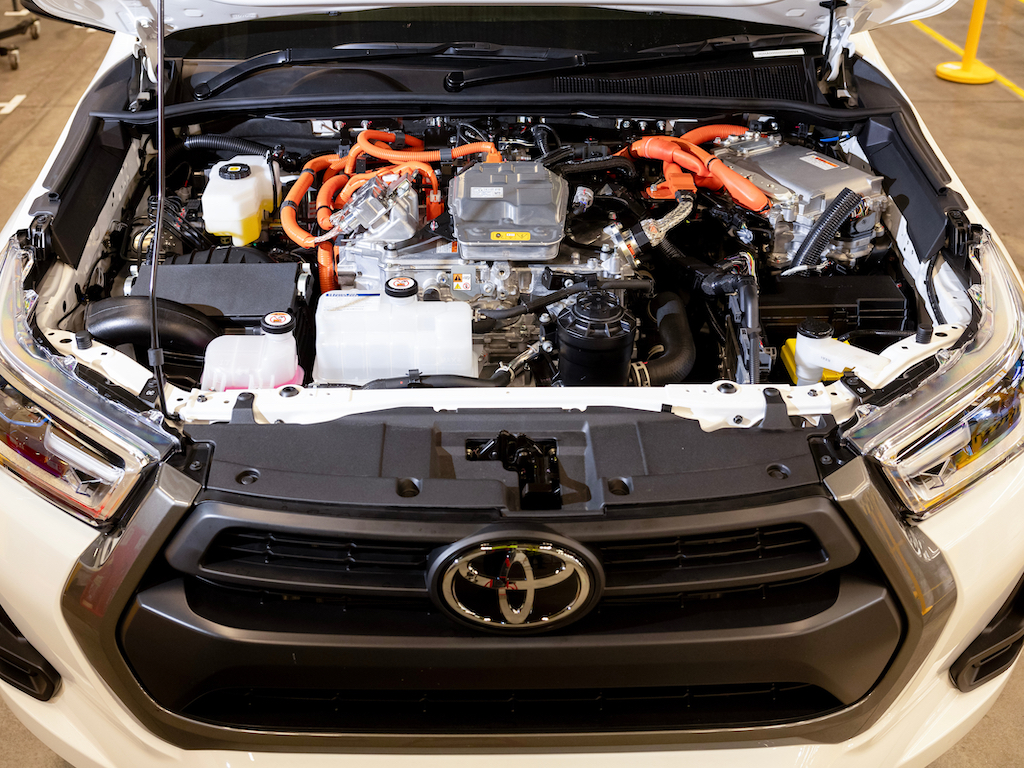Toyota reveals hydrogen-fuelled Hilux pickup
Toyota has unveiled a prototype Hilux pickup, equipped with a hydrogen fuel cell system.
Revealed at the brand’s Burnaston car plant in the UK, the ground-breaking vehicle combines an expected driving range of over 365 miles along with zero tailpipe emissions.
It’s been developed in a joint project with consortium partners announced in December 2022 and supported by government funding.
The prototype uses Toyota’s latest second-generation fuel cell technology already seen in the Mirai saloon to transform the ICE Hilux into a fuel cell electric vehicle that would deliver a much-needed solution to plug a gap in fleet electrification plans.
Three high-pressure fuel tanks are used, while the battery, which stores electricity produced on-board by the fuel cell, is positioned in the rear load deck, avoiding loss of cabin space.
Benefits of the fuel cell technology compared to electric pickups include its long range – significantly further than might be achieved with a battery electric system – and quick refuelling time.
The technology behind the powertrain has already been proven with almost 10 years of commercial production, while the prototype has also been designed to deliver the same durability and reliability as the standard Hilux.
The inaugural vehicle was completed three weeks after the start of construction and is the first of 10 that will be built by the end of this year. These will be put through testing on safety, dynamic performance, functionality and durability, evaluating the potential for a production version.
Nusrat Ghani, Minister for Industry and Economic Security, said: “We have an amazing manufacturing sector here in the UK, and this is a great example. It’s fantastic to see Toyota reach another milestone on their journey to zero emissions here in Britain, and I congratulate the project team for their success on this cutting-edge development. This is a great vote of confidence in UK manufacturing and its potential to deliver carbon-free vehicles to meet future targets.”
Toyota said the debut provided a further demonstration of the broad scope of its multi-technology strategy for ultimately achieving carbon-free mobility, applying different powertrain solutions – hybrid electric, plug-in hybrid electric, battery electric and fuel cell electric – to suit different user needs and operating environments worldwide.
Richard Kenworthy, managing director at Toyota Motor Manufacturing UK, said: “The project team have accomplished an incredible job in a very short space of time, from creating the prototype build area to completion of the first vehicle. The UK government funding has enabled us not only to develop a new vehicle in record time, but also to upskill our teams to work on hydrogen-related technologies, something we hope to build on in the future.
“This is a great vote of confidence in UK manufacturing and its potential to deliver carbon-free vehicles to meet future targets.”
The project is being supported by government funding via the Advanced Propulsion Centre (APC). Consortium partners also include Ricardo, ETL, D2H Advanced Technologies and Thatcham Research.

